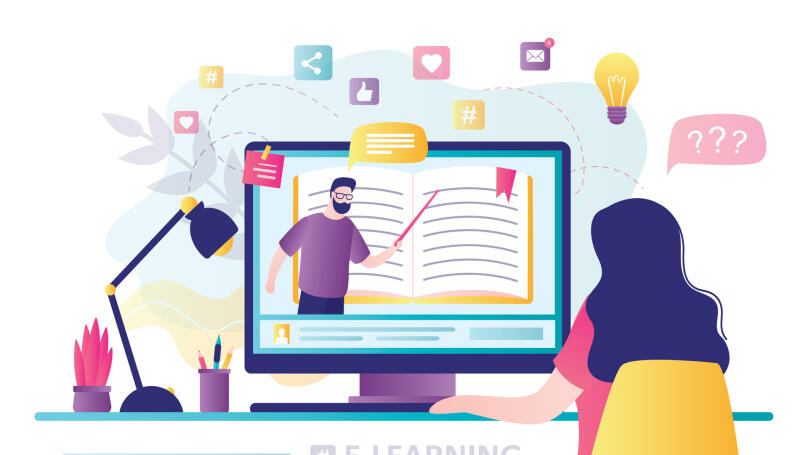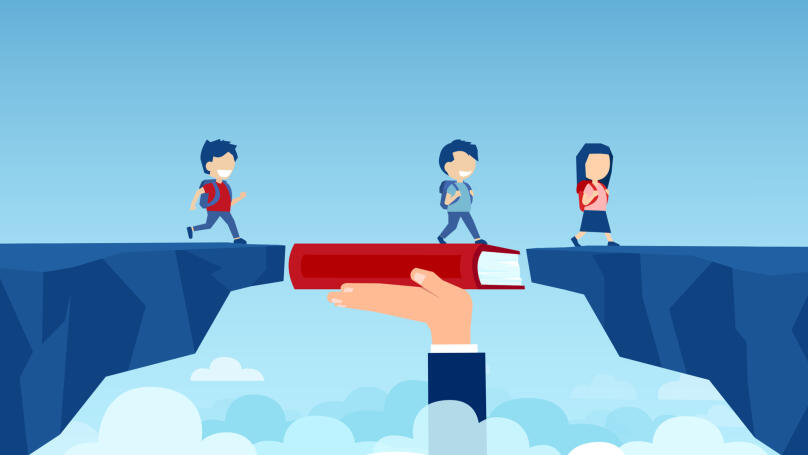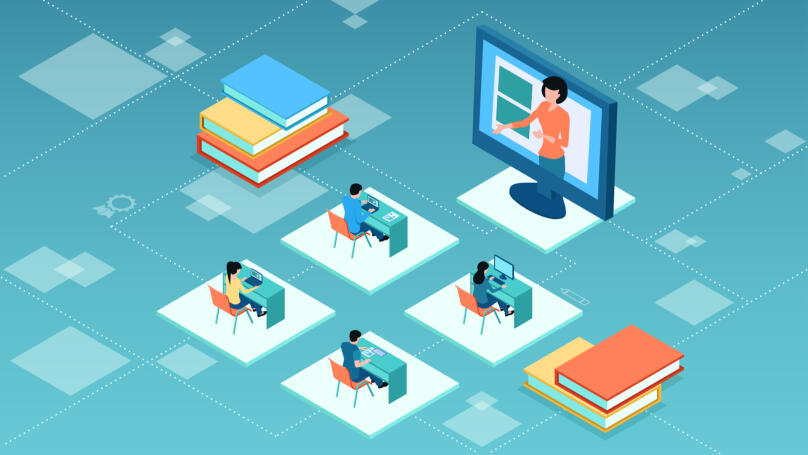How is technology changing our education?
Over the course of a century, technology has completely changed the way we live and learn. Or has it?

If you look at this painting by the Italian artist Laurentius de Voltolina, who lived in the 13-14th centuries, you can easily see the familiar realities of every student: a lecture is going on, the students in the first couple of rows listen attentively to the teacher, and the students in the back row no longer know how to entertain themselves... Some are asleep and some are talking among themselves. It is much easier for modern students to entertain themselves; they just need to turn on their smartphone and go online. Here it is - the first example of how technology has changed our education and our attitudes towards it! But that's not all.
Access to information

It was very difficult for a medieval student to gain access to information. Books were considered a rarity and in order to read the desired manuscript, they had to travel a month or even a year. Now, to gain access to the information that you need you just have to press a few keys on the keyboard. But this also has its drawbacks.
There is a lot of unreliable and fake information on the Internet. Let's say you are looking for an answer to a specific question. You find five links that answer the question "yes" and just one link that says "no." Which one will you believe? Alas, most likely the five links, because they are the majority, which means that they aren't lying. But this is not the case! Unfortunately, one unpopular opinion or link can be shared by a professional researcher, while the other four links can be to well-known, but amateur resources.
Teachers often complain that students use unverified information from the Internet. But students cannot simply be prohibited from using this information. They need to be taught how to work with it correctly. Now this is the key task for teachers. At a minimum, they should tell students about fake information: what it is, how to identify it, and how to fact check any resource.
Roles of teachers and students

Previously, the most popular teaching model looked like this: the teacher shares his knowledge in lectures and the students try to memorize and write down as much as possible. Students received information passively, without trying to express their opinions or take an active part in the educational process. This education model is still used today. But is it effective?
We get only 13% of the amount of information that we receive daily by ear. But visually, we get as much as 75% of the information that we receive about the world around us! What does this mean? Best of all, we remember what is visual and what we do for ourselves in practice. Previously, it was difficult to organize information through visual means, but new technologies are solving this problem.
The teacher who was once the only possible conductor of knowledge now turns into a "helper" whose task it is to create a favorable environment for learning information and to teach students how to find this information. Modern technologies make it possible to organize this process so that students can devote the maximum time to practicing their skills and not only memorize the material, but also learn to use it as well.
Lectera’s Online Courses by topic
Relationship between students

In the past, students were limited to communicating with those with whom they studied with in the same class or in the same group. Now the situation has changed. Thanks to new technologies, students can keep in touch with students from other countries and universities! How will this integration change our education? Many interesting international projects will appear (and have already appeared). Both students and professors are involved in such projects. And international projects, in turn, make the educational environment more competitive. Students compete not only with their classmates, but with the best of the best in their specialty area.
Thanks to international projects, the general level of work of students rises. Talented and enterprising students get the opportunity to earn recognition and, perhaps, even build a successful career in the future. At the same time, competition between educational institutions is intensifying. If a school, college, or university does not provide development opportunities for talented students, then the students can easily find a better institution elsewhere.
The second important consequence is that high competition will create a more tense psychological environment. When competition levels are so high it is important to help people, both students and educators, adapt and cope with stress. This will require courses in emotional intelligence and conflict management, the demand for which, by the way, is already growing exponentially.
Technology is changing our lives and our education: the relationship between student and teacher, as well as the relationship between classmates. New models are being formed now, but it is already safe to say that all of them will be more democratic, more flexible, and more competitive than the old models. This is undoubtedly a second wind for the education system!
Share this with your friends via:
Latest News

In the UK, £23 million has been allocated for the expansion of the EdTech Testbed program — pilots of educational technologies in schools and colleges.

In the US, Tuskegee University announced the launch of Tuskegee University Global Campus (TUGC) — a new online platform for distance learning.

A significant stage in the development of the alternative education system has begun in West Northamptonshire in the UK: the County Council is actively calling on parents, guardians, and trustees to participate in shaping the future of this key area.

Outwoods Primary School in Atherstone, Warwickshire, having experienced deep sadness after the loss of their famous cat, Silla, has found solace in a new pet – a Maine Coon named Aloysius O’Hara.

In modern universities, artificial intelligence, and in particular ChatGPT, is rapidly transforming from a controversial tool into a full-fledged student assistant.












 Spring skills audit: what to remove, strengthen, and “sow” in learning
Spring skills audit: what to remove, strengthen, and “sow” in learning
 9 Career Mistakes Young Professionals Make
9 Career Mistakes Young Professionals Make
 £23 million allocated for the expansion of EdTech Testbed in the UK
£23 million allocated for the expansion of EdTech Testbed in the UK
 Test: How Psychologically Mature Are You? Check Your Inner Foundation.
Test: How Psychologically Mature Are You? Check Your Inner Foundation.
 Test. Check Your Social Media Dependency Level!
Test. Check Your Social Media Dependency Level!
 Test: What Business is Right For You?
Test: What Business is Right For You?
